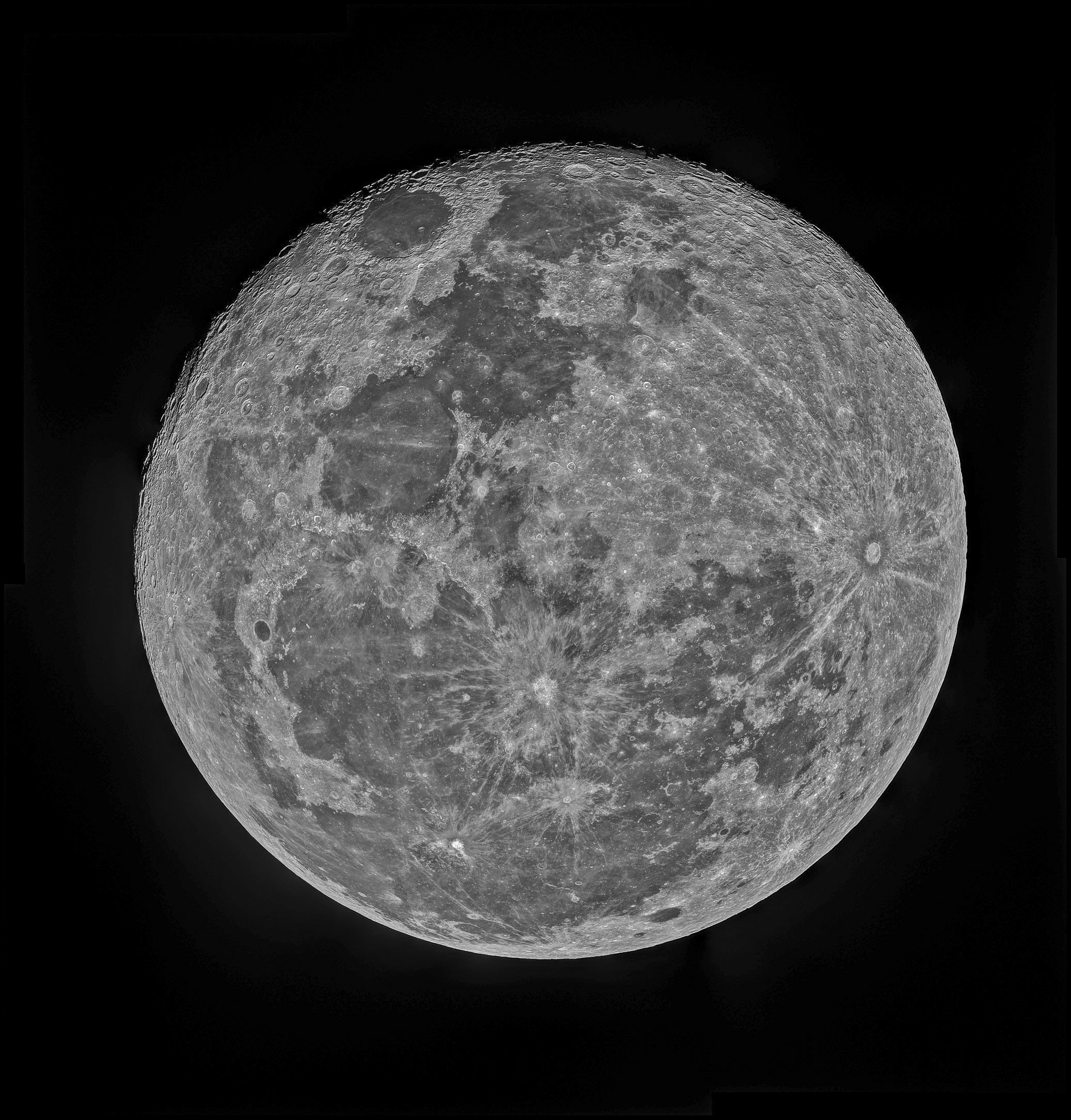December 20, 2013
50 Shades of Gray

image by Brian Shelton, Oconee, Georgia
I grew up observing the Moon with newtonian reflectors in the northern hemisphere so I still feel the Moon should be south up. But in 1960 the IAU switched north and
south and east and west and I generally ignored it. But when The Modern Moon was being designed in 2002, the publisher, Sky the Telescope, wanted the illustrations
to have north up to be consistent with the Rükl Altas and so it was. Mostly in LPOD the images are north up just because that is widespread use now, but sometimes -
especially when looking at the southern limb - it seems more natural to have south up. So Brian's image is a good compromise with east up. Of course, that is the way
the full Moon appears in the sky when rising. This image, from a first time LPOD contributor, is quite sharp, but what is really excellent is the many shades of tonal
variation (which I have enhanced more here). Look at any mare to see grayness variations from very light to almost black. This really helps to document the various
histories and processes, from dark young mare - if titanium-rich - to lighter and lighter surfaces as veneers of rays accumulate. Explore the shades of gray.
Chuck Wood
Technical Details
December 18, 2013. Astro-Physics 160 mounted on an AP900 using a PGR Grasshopper video camera. The photo is actually a stitched image of a number of stacked images yielding detailed hi-res 27MB combined result.
Related Links
21st Century Atlas charts FM 1-4.
Yesterday's LPOD: Stripped of Context, 2.0
Tomorrow's LPOD: DAO
COMMENTS?
Register, Log in, and join in the comments.



